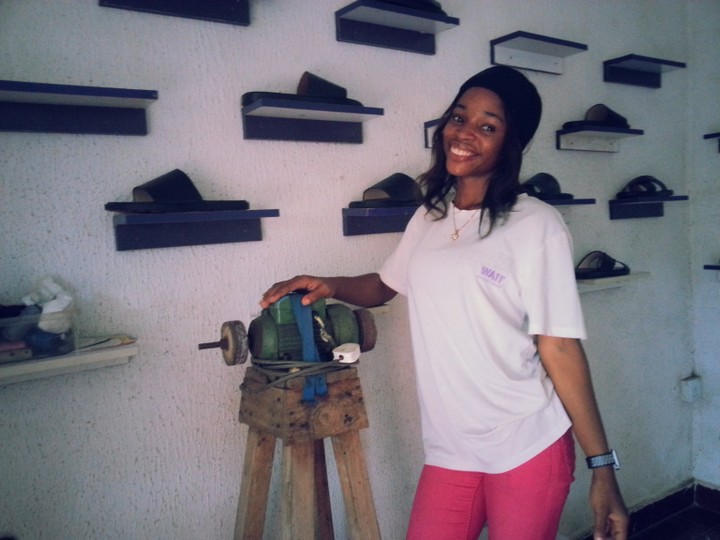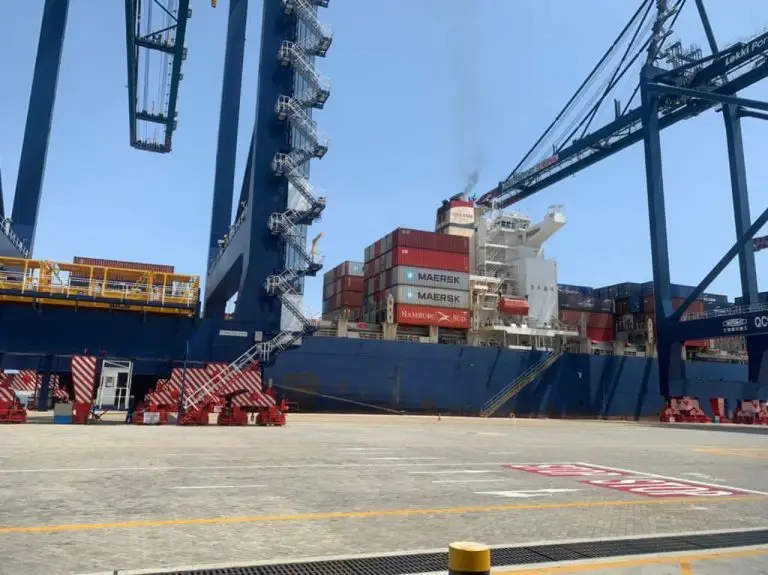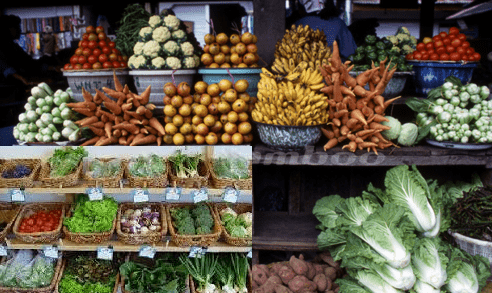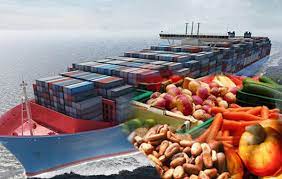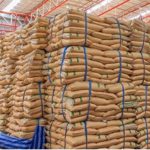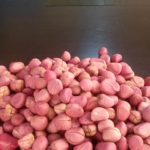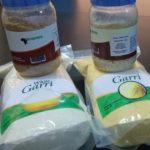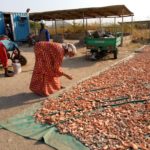Commerce
The Entrepreneur’s Journey with Rare Creations
To GOD be all glory Boluwatife Rosanje is the proud shoemaker-CEO of RARE Creations (acronyms derived from- Rosanje Anuoluwapo Rebecca Evangel).
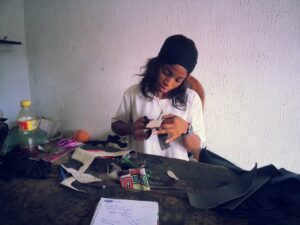 Last born in a family of 4 kids to Mr. & Mrs Rosanje from Odogbolu local government in Ijebu, Ogun state, the multifaceted Boluwatife shares her experiential journey as a female shoemaker with GODSPOWERPROJECT
Last born in a family of 4 kids to Mr. & Mrs Rosanje from Odogbolu local government in Ijebu, Ogun state, the multifaceted Boluwatife shares her experiential journey as a female shoemaker with GODSPOWERPROJECT
GPP– How has the experience been?
RARE– It has been wonderful, you know how life is, sometimes business will be rosy and other times somehow, but in everything you just have to give thanks to GOD, because I really appreciate GOD, it’s not by my power neither by my might.
GPP– What continues to motivate you?
RARE– I think me, I see myself as a product of grace, and the support and encouragement I get from my family and friends continue to push me to do more and do better.
GPP– What are your Major challenges
RARE– Basically financial challenges and another challenge to me is the schooling aspect. I graduated secondary school about 3-4 years ago, now imagine my mates are in school, learning, my major concern now is I dont want to see my mates and dodge, that’s my major prayer. Me not being in school now, GOD knows best, even Nigeria itself is so messed up, because I wrote jamb and passed, but the university are doing as they like. My major challenge is the need to work on my finance, family and schooling.
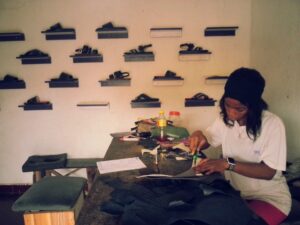 GPP– Let’s discuss greatest reward and memorable moments
GPP– Let’s discuss greatest reward and memorable moments
RARE– Rare Creations will be 2 years by October 17, I was trying to pen down my customer database, I couldn’t document them all and I just decided I’d just throw a general anniversary party where everyone should just come, because I intended to do something special for my customers but I lost count. I really thank GOD for every reward, support and love from everywhere.
GPP– Your advice to general public?
RARE– After GOD, the first thing in life is loving yourself, when you love yourself and know what you love, because I know I’m a fashion person and so in life, you have to have self discovery, self confidence and high self esteem. The road to self discovery involves knowing what makes you happy because your happiness should be your first priority because there are times you’ll be down with nobody to help, so you have to cheer yourself up. Like I noticed sketching illustrations works for me.
GPP– Don’t you feel intimidated in this Male dominated hustle
RARE– Do I? I don’t, I’m even proud of it actually, you know it makes a difference being a lady-shoemaker. I say yes, I’m proud of my job, that’s what I do for a living.
I came across my boss- a female making footwear and I thought, ‘wow, a lady can do this too’, but every of her apprentices were male. It became ‘since she can do this, I can learn it also’ so I had it in mind to learn it.
 GPP– Where do you see RARE Creations in 2 years?
GPP– Where do you see RARE Creations in 2 years?
RARE– I see the business going international outside Nigeria, though that involves working on myself first, because you just can’t go international without knowing what the international market entails, the locations and you know the way we satisfy our Nigerian customers cannot be the same way to satisfy our abroad customers. I want to see my works in boutiques over there, partnering with businesses and companies over there. Home and abroad actually, because you cannot go there and forget your source.
GPP– Describe your relationship with GOD
RARE– I use it as a slang already, when GOD is your Sugar Daddy, you just do anyhow. Because me and GOD just click. HE’S my close pal. We discuss and do things together.
Being a lady in a male industry, there are some touches there, but GOD is my close Pal. HE never leaves me, always with me.
GPP– If not this business what would you be doing now?
RARE– If not this business probably as I graduated from school I’d be in a hurry to enter university and then when I’m done with university I’ll now come back because in Nigeria, after school there’s no work. You just have to make a means of survival for yourself.
GPP– What is the common misconception about ladies in this profession?
RARE– People get it wrong by saying it’s a guys work dont forget the saying that “what a man can do a woman can do better” and some people say it’s a dirty job and I use to tell people my Yoruba proverb that says “its inside the dirt that we find money”
GPP– So how do you handle clients who ask you out?
RARE– Clients who ask me out I go straight to the point, if I’m interested I’ll tell you but if I’m not, we’ll just maintain client-customer relationship. I dont bring fun or pleasure into my business. There was a time I had a boyfriend, I said to him ‘when it’s time to work let’s go straight to the point about business here and when we talk about our relationship that’s another ballgame. If you want to make pam, bro you’re gonna pay but I might give boyfriend discount but you’re gonna pay.
GPP– How did the RARE Creations come about?
RARE– I was in school when I got the RARE,
I was class captain and there’s this room where I usually pray or read. This particular day I was observing a personal fast and the inspiration just popped. So I started wondering what the RARE meant. I have not dreamt of this shoemaking venture then. I only got the name first and over time it started coming to me.
R- Rosanje/ Rebecca
A- Anuoluwapo/Adetutu
R- Rebecca
E- Evangel

I asked my mum how my Evangel name came about and she said they were on evangelism outreach when she gave birth to me. I was given birth to during evangelism.
So later when I learned the business and looking for a brand name, the RARE was whistling in my head, in my heart and everywhere and I just added the Creations. RARE Creations has been in existence for over 2 years.
FB- RARE Creations
Instagram- Mhiz_rare
The Exportables- Sesame Seed
Sesame Seed
Other Names; Benne, benne seed, benniseed.
Sesame Seed follows after Cocoa as the Nigeria’s leading agricultural exports.
With its rich nutty flavor, Sesame, which has one of the highest oil contents of any seed, remains one of the oldest oilseed crops in the known world.
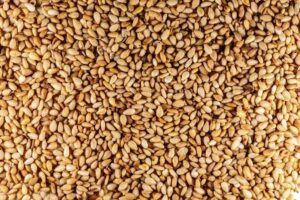
Official Charge For The Month Of June
GODSPOWERPROJECT
Palmadex Charge for the Season
I would like to encourage new exporters and also would-be investors in export; this is the best time to export.
The current government, I believe they are going to put more effort to encourage non oil export thereby making business more flexible for people that are interested in doing export.
I want to encourage everyone to come to Palmadex Export Academy.
Learn about export because in coming months or within a year, there’ll be a lot of government incentives for export businesses, and loan facilities from the federal government. –
Dr. Patrick Omoyeni
Operations Manager at Palmadex Group
ChMC (Canada), CMC, FIMC, FIMS (UK), DH (Commonwealth University, London), FIA (Middlesex), DPA (University of Nicosia, Cyprus)
Operations Manager, Palmadex Group
With over 7 years in export administration, management and operations, Patrick ranks among top export experts/consultants in Nigeria to the point of being awarded the highly coveted Kwame Nkrumah Transformational Leadership Award and also admitted into the International Chamber of Commerce, the world business organisation of the United Nations as a Distinguished Member. Having taken highly tasking technical, leadership and operations responsibilities, Patrick has grown his professional career in Palmadex Group, where he is currently the Operations Manager, the position he combines with the office of the Training Director of Palmadex Export Academy. He also undertakes major roles in the operations of Palmadex International General Trading LLC, Dubai and the company’s Vietnam Office. Patrick was the only pioneer staff of Palmadex. Together with the management team, the company has over 100 full and support staff as at today.
After his first degree from University of Port Harcourt, Patrick had obtained Masterclass Certificate in Business Management/Leadership at the London Graduate School and Doctorate in humanities at the prestigious Commonwealth University, London. He also has Doctorate in Public Administration from University of Nicosia, Cyprus.
Dr. Patrick Omoyeni, a fellow of various local and international institutes in 2021 became Chartered Management Consultant at the Institute of Chartered Management Consultants, Canada.
Let Everything That Has Breath Praise The LORD. Praise GOD!
Happy New Month
Export Financing
: +234(80)66579079
: [email protected]
: [email protected]
: [email protected]
: palmadex.com
Export Contract and Sales Agreement
Fundamentals of Export with PEA
Winners of Best Agricultural Product export company of the year by the Nigeria Export Summit. And also winners of the best export trading institute of the year 2019. We are the benchmark to export trading in Africa, We provide executive training, with the best curriculum and hands-on training.
Lekki Seaport Berths Largest Vessel Since Commencement Of Operations
Praise GOD.
The Lekki Deep Seaport on Friday, 19th of May, surpassed stakeholders expectations since the start of operations with the berthing of its largest vessel, a 300-meter Length Over All vessel.
The vessel christened, CMA-CGM RABELAIS, with an impressive capacity of 6570 TEUs, started its journey from China.
The News Agency of Nigeria (NAN) reports that the berthing of the record-making vessel, was contained in a statement issued on the official Twitter page of the Nigerian Ports Authority (NPA).
The statement said the vessel christened CMA-CGM RABELAIS had an impressive capacity of 6570 TEUs.
It said the vessel would be discharging and loading export cargoes.
“The journey of the vessel originated from Shanghai, China and called at the Lekki Port,” it said.
In response to the development, the NPA Managing Director, Mr Mohammed Bello-Koko, said: “it is a testament to Nigeria’s drive in delivering cargo with ease and utmost efficiency.”
“The fact that this vessel was departing the country on the same day it berthed was a fulfillment of their promise to deliver speedy cargo dwell time,” Bello-Koko said.
He noted that this was done through improved efficiencies, and state-of-the-art machinery.
“I am delighted to assure you that we are committed to continuously improving on this milestone,” he added.
The statement quoted the Asst. Harbour Master for Lekki Port, Capt. Monday Gajere, as saying that the thorough navigation risk assessment involving pilots, tugs, and mooring gangs allowed for smooth berthing of the large cargo carrier.
Gajere said that the berthing of the large cargo carrier was a demonstration of the Authority’s readiness to handle such cargoes.
“This is to maximise the competitive advantages that Lekki Port deep draught and state-of-the-art equipment offers as Nigeria advances toward attaining port hub status,” he said. (NAN)
25 Hottest Money Spinning Non-oil Exportable Products in Nigeria
A lot of money change hands in non-oil export. Only very few Nigerians for now have penetrated the lucrative market of non-oil export and reaping cool big profit without stress. The KNOW-HOW of Non-Oil Export secrets had been covered up and seriously guided for sometime, but we have decided to reveal the top 25 most profitable non-oil product in Nigeria, these products are in high demand in the international markets.
LET EVERYTHING THAT HAS BREATH PRAISE THE LORD. PRAISE GOD
The profit from the first transaction can be ploughed back and an investor will be able to build up his capital base.
Here are the 25 hottest money spinning non-oil exportable products in Nigeria
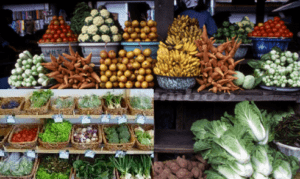
Cassava flour: Cassava flour has very close substitute in gari, yam flour, plantain flour etc. This notwithstanding it is a very popular food item that is easy and fast to prepare, has long shelf-life, and is preferable to the unpleasant and putrefying odour associated with the wet process of cassava preparation. The raw material for this project is cassava tubers. The raw material is available all over the federation. The machinery, accessories and equipment needed to produce good quality cassava flour are cassava peeler, cassava tuber, grinder, siever, dryer, fermentation tank, sealing /sewing machine and international standard measuring scale. All of the above can be fabricated locally for any capacity required by investors. There is market in Europe, America, Far East by notable industries
Cotton: Cotton is the most important natural fibre of the 20th century. The efforts of the Federal Government of Nigeria towards the development of the nation’s cotton sector received a boost recently, as the National Cotton Association of Nigeria (NACOTAN), got a lifeline of N33 million to enable the sector bounce back to life. Dangote group recently assured all cotton farmers that the company will assist the processing of their cotton including exportation as arrangement has reached advanced state with some foreign firms on the purchase of all processed cotton in the Country.
Snail: Nigerian snails are in high demands in America and Europeans Countries.
The only thing the snails may constantly demand from you is your attention and care. If your start up capital is N100,000 you can generate the sum of one million naira in one year. They hardly fall sick. You don’t have to buy their food and you may not have to spend much to create an abode for them. The beauty of it all is that the snails reproduce rapidly. They are capable of producing hundreds of eggs, which hatch into snails. It is now possible to produce 1,000,000 snails worth more than N5 million twice a year.
Ginger: Ginger is one of the most important articles of trade in the world spice market, where it is found fresh, dehydrated, preserved powdered and other forms. Though, Nigeria is among the World’s largest producers of ginger. Ginger’s flavour and colour vary with its origin and harvesting, storage and processing conditions. Traditionally ginger is mostly sun dried in production centers, and it is often under dried in order to meet supply schedule, as a result it is often found to be moulded after shipment, and the colour of the dried and powdered ginger is sometimes dull with musty smell.
Leather and Footwear: Presently the world footwear and leather products sector is moving from high-cost industrialized countries to developing countries and many developing countries (Nigeria inclusive) have strong potentials in this sector regarding raw material and human resources, but have mainly remained suppliers of raw and semi-finished products. The raw materials for leather and its products are mainly from livestock, and Nigeria is endowed with the third largest livestock population in Africa. Raw materials availability has been acknowledged as a basic comparative advantage towards the export of leather and leather products.
Palm Kernel Oil: Palm kernel oil (PKO) is extracted from the kernel of palm. It should not be confuse with palm oil, which is obtained from the pulp of fruit of the palm. Palm kernel oil has a light yellow color and it has a milder flavor than palm oil. It is often used in the manufacture of various cosmetic, confectionery and pharmaceutical industries. Palm Kernel Oil Crushing is a viable investment because raw materials can be sourced at ease, the production technology is simple and feasible, and the market for end products are automatic.
Palm Kernel Cake: Palm kernel cake (PKC) as a by-product in the milling of palm kernel oil. Palm kernel cake is considered a medium grade protein in feed, containing 14.6% to 16.0% crude protein, useful for fattening cattle either as a single feed, with only minerals and vitamins supplementation or mixed with other feedstuff. It has also become the main ingredient in daily cattle ration. Palm kernel cake is commonly export, mainly to Europe. It is delivered in bulk via vessel or pack in bags for easier handling and distribution. Lately, it is also used as Biomass fuel in Europe especially United Kingdom to provide heat and energy. The cake is demanded by feed millers and by exporters.
Investors can also export directly. In fact, an established factory will always have customers depositing in advance of production.
Yam flour: There is no doubt that Nigeria produces yam in abundance. In every state of the country, yam is available. It is estimated that over 30% of the harvested yam tubers are lost as waste, but due to the availability of processing and preservation mechanism it is easy. The machinery and equipment needed to process yam flour are:(a) Yam peeler (b) Milling machine (c) Boiler (d) Scale (e) Dryer (f) sealing machine (g) Packing machine. If there is a country that should take this project very seriously it is Nigeria. It is the world’s largest producer of yams (over six million metric tones) accounting for over 50% of its output. Of this output, only about 5% (300, 000 MT) is put into industrial use by way of chips and flour.
Textiles and Garments: Made in Nigeria textile – Nigerians can now tap into the $31bn US Booming Garment Market. When AGOA (African Growth and Opportunity Act ) came into effect, many Nigerians saw a window of foreign exchange earning in the textile and garment section of the act and keyed into it such Nigerians now earn millions of dollars from garment and textile exports to the US annually. Nigeria’s textiles and apparels have been granted duty-free passage into the United States’ where a large market exists for ethnic African fabrics and designs.
Cocoa butter: Like many trees, the cocoa tree produces fruit. Inside this fruit are seeds known as “cocoa beans.” When cocoa beans are crushed and pressed, cocoa butter and cocoa powder are released, both of which are essential to chocolate making. The smooth texture, sweet fragrance and emollient property of cocoa butter make it a popular ingredient in cosmetics and skin care products, such as soaps and lotions. Because of it’s high stability, cocoa butter is also used in a variety of health and beauty products as well, such as lotions, facial products, cosmetics and pharmaceutical products. This product is in high demand in UK and America
Gum Arabic: Gum Arabic is produced by Acacia trees and occurs within the Sahel Ecological zone of Nigeria. We are currently the third largest exporter of Gum Arabic in Africa, after Sudan and Chad. Its annual exports are estimated at 5,000 metric tons. The highest quality of Gum Arabic—Grade 1—is used in a wide variety of food, beverage, cosmetic, and pharmaceutical products, making the market for this grade of gum quite robust. The Nigerian Gum Arabic season is December to April of the following year and the trading period of the product takes place between January and June of every other year. Newly established National Association of Gum Arabic Producers, Processors and Exporters of Nigeria (NAGAPPEN) chapters in each state have been the vehicle through which informal training has been conducted.
Cashew nuts: Cashews are found wild and cultivated in about 14 States in Nigeria, but has potential for cultivation in almost all part of the country. Actual producton figure is not available, but is estimated to be around 50,000 tons annually. Over 80 per cent of this,is exported raw and unprocessed to India, Vietnam and Brazil, where they are processed into kernels and sold for higher value in Europe and North-America.In recent times, world market price of kernels has stabilised at $1.7 per pound for the benchmark grade – W320, and $3. 10-3.20 for the W180 grade. This consumer-friendly price is likely to sustain continued demand for the product, even as new low cost suppliers enter the international market.One cashew tree produces between 200 and 300 cashew nuts in a year.
Charcoal: The cry for alternative energy source has put CHARCOAL in the forefront in the global market. A large market exists in EU, USA and ASIA with prices ranging from $700 to $800 per ton, with about 40% return on Investment. This product is virtually available all over Nigeria as many local communities have perfected the technology of charcoal production. Some known charcoal deports are found in places like Oyo, Isheyin, Saki Igbo-Ora, Ogbomoso- all in the western part of the country. We also have depots in Jebba, Omu Aran, Egbe, Kabba in the Central States. Charcoal is found in abundance also in Minna, Jos and Kaduna. Besides, an individual can produce his own charcoal wherever he/she is located.
Cosmetics and soap: The technology and art of making soap has been with us for a very long time. It is only the technology that has improved globally, which Nigeria investors can as well imbibe. Cosmetic and soap production, whether laundry or toilet, can be carried out in any part of the country. One can conveniently set up a virile and dependable plant using locally manufactured machinery and equipment. Apart from the big Nigerian market, one can cash in on the high demand from the neighboring countries (whose citizens travel several kilometers to Nigeria to purchase their daily essentials) to embark on export, once the quality is good and price competitive.
Gallstone: Gallstone is clay-like solid substance found in the gallbladder of a matured cow or oxen. It is about the size of a peanut and can be as big as a pigeon egg. At times, they could be as big as ordinary eggs and can weigh between 15 and 18 grammes. They are collected by pharmaceutical companies abroad for medical purposes. A good quality gallstone should be dried upon collection of some quantity say 100g, you can then parcel them and send to buyers abroad who then pay with hard currency immediately the parcel is received. Gallstone has a well-established market in Asia and America. The market is guaranteed and can take up as much quantity as supplied without any adverse effect on the price.
Rubber: The Rubber Research Institute of Nigeria (RRIN) has acquired costly equipment to act as a designated Central Testing Laboratory (CTL) in Nigeria. This accreditation would ensure that the Institute examines and certifies rubber produced in Nigeria for export. The reality right now is that the increasing cost of sourcing rubber wood has made companies in Asia and buyers in the U. S. and Europe to search for cheaper sources particularly among rubber producing countries, of which Nigeria is a significant producer. The export market takes first quality rubber wood almost exclusively; a cubit meter of wood goes for between $250 and $350 depending on the quality
Shea butter: Shea butter or Shea nut butter is a slightly yellowish or ivory-colored natural fat extracted from fruit of the shea tree by crushing and boiling. Recently the Nigerian First Lady, Hajia Turai Umaru YarAdua invited Japanese Shea Butter experts to set up a factory that will train Nigerian women who have been known to be actively involved in the production of Shea butter in the country. Capitalizing on Shea butter global popularity, Nigeria and Japan will team up to bolster female entrepreneurs in Nigeria and strengthen the country’s economy by increasing production of the nut-based fat. It is hoped that with Japan support and intervention and additional support from government, shea butter production will witness new heights as a foreign exchange earner for Nigeria.
Sesame seed: Sesame seeds (sesamum indicum) belong to the plant family Pedaliaceae. it is an important oilseed crop believed to have originated from tropical Africa. 25% of world sesame seed hecterage is planted in Africa and Nigeria is one of the major producers of sesame seed in Africa. It is found predominantly in Benue and Jigawa States in Northern Nigeria. It is one of the oldest food and cash crop in Nigeria which is produced in 21 states of the Federation. The commodity ranks second to cocoa in terms of volume of export and foreign exchange earnings. Global production in 2005 was put at 2.4 million metric tonnes with China and India as leading producers. Nigeria is the 5th largest producer of the commodity in the world with an estimated production of 120,000 metric tones annually.
Garlic: Garlic is usually grown under irrigation by farmers as a cash crop in the Savanna zone of Nigeria, between the months of November and March, during which there is cool, dry weather condition that favours its growth and yield. In Nigeria, however, reliable production figures are not readily available due to paucity of published information on the production of this crop. Garlic is a product that can earn you foreign dollars in America and EU Countries
Chili Pepper: Nigeria is known to be one of the major producers of pepper in the world. The implication of this is that we have the good weather that can readily support the growth and production of pepper in Nigeria There are hundreds of different types of chili peppers that vary in size, shape, color, flavor and “hotness.” This fleshy berry features many seeds inside a potent package that can range from less than one inch to six inches in length, and approximately one-half to one inch in diameter. Chili peppers are usually red or green in color.
Pure Honey: Honey is primarily composed of fructose, glucose and water. It also contains other sugars as well trace enzymes, minerals, vitamins and amino acids. Honey is “manufactured” in one of the world’s most efficient factories, the beehive. Honey is currently priced between US$ 10.00 AND US$12.00 per kilogram at international market. At the Nigerian market genuine pure natural honey cost between N1000-N1, 500 litre
Poultry: The term poultry is generally used to refer all the domestic birds kept egg or meat purposes. Neighboring West East and Northern Africa Countries also depend on poultry eggs from Nigeria, as the weather for the production of poultry eggs is highly conducive in Nigeria compared to these neighboring countries. Irrespective of the abundant animal feeds, which are readily available, there is also the export potential, which has not been tapped fully. For any person or corporate bodies looking for a project that will generate income on a daily basis, poultry egg production is one of such project.
Fruit juice: The Nigerian market provides huge export market opportunities for U.S. exporters of fruit juice concentrate. Nigeria’s fruit juice market has grown 60 percent over the last five years and this growth is due to increasing incomes of Nigerian consumers, an expanding middle class, and greater health-consciousness of consumers. The federal government of the 29th January 2003 announced the total ban of importation of fruit Juice (either in bottled or packaged form). However investors can import such in big drums or containers as raw materials in their industries, for repacking or rebottling in Nigeria. There are lots of natural fruit in the country namely: Mango, Citrus, Tomato, Paw-paw, guava, Pineapple to mention but a few. These fruits are produced abundantly in almost all states of the Federation and available in all Nigerian markets.
Shrimps: Nigeria is one of the tropical countries endowed with rich shrimp resources. With rich organic deposit arising from runoff the Niger Delta region is the heartland of shrimp and oil production in Nigeria. Having a production capacity of 12, 000 metric tons (MT) per year. The major markets for the Nigerian shrimp in Europe are Belgium, Portugal, Spain, France and the USA.. All are usually packaged in 2.2-kg packets into master cartons.
Yam: Nigeria realized N56 billion (US$380 million) from yam exports during 2008 according to figures released by the Nigerian Export Promotion Council (NEPC)
World production of yam is 51.4 million tonnes per year out of which Nigeria accounts for an average of 36.7 million tonnes, Ghana for 3.6 million tonnes and Cote d’Ivoire for 4.8 million tonnes. There are no specific standards for yam export, but intending exporters must seek information on the quality and phytosanitary regulations of the importing country as well as the product specifications required by the importer
Please remember, preparing for the world of international trade is a complex process. But with the proper knowledge and strategy, you’ll soon be on your way to world wide success.
To get started ; follow link below
08066579079
This post was originally written on
Find 25 Hottest Non-Oil Profitable Export Products Made in Nigeria
Nigeria’s exports to African countries hit N7.55trn
Although Nigeria is yet to fully start implementing and taking advantage of the African Continental Free Trade Area (AfCFTA), the country’s total exports within the continent maintained an upward trend in the last few years, amounting to N7.55 trillion between 2020 and 2022, findings by New Telegraph show. According to the latest data on the country’s foreign trade in goods recently released by the National Bureau of Statistics (NBS), the value of Nigeria’s total exports to other African countries stood at N2.66 trillion in 2022 compared with N2.51trillion and N2.37trillion in 2021 and 2020 respectively.
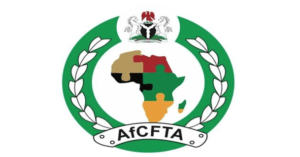
In March 2018, African heads of state and government, had at an extraordinary summit in Kigali, Rwanda, agreed to establish the AfCFTA. The initiative, which aims to boost intra-African trade, brings together 1.3 billion people in a $3.4 trillion economic bloc, thus making it the largest free-trade area in the world in terms of the number of participating countries since the formation of the World Trade Organization (WTO). Originally scheduled to kick off on July 1, 2020, the Covid-19 crisis, and other factors led to the implementation date for the agreement being shifted to January 1, 2021.
After an initial delay, caused by what it said was the need to critically evaluate the agreement with respect to Nigeria’s national interest and implications for the economy, the Federal Government approved the ratification of the pact on November 4, 2020 and deposited the instrument of ratification on December 15, 2020, thus becoming the 34th State Party to ratify the treaty. Available data indicates that as at February 2023, 46 of the 54 signatories(85.2%) have deposited their instruments of AfCFTA ratification. Commenting on the agreement in 2020, then World Bank Chief Economist for Africa, Albert Zeufack, said:
“The African Continental Free Trade Area has the potential to increase employment opportunities and incomes, helping to expand opportunities for all Africans. “The AfCFTA is expected to lift around 68 million people out of moderate poverty and make African countries more competitive. But successful implementation will be key, including careful monitoring of impacts on all workers—women and men, skilled and unskilled—across all countries and sectors, ensuring the agreement’s full benefit.” Experts point out that while Nigeria is the largest economy on the continent, the bulk of its exports goes to Europe, Asia and America. Indeed, in its foreign trade in goods statistics report for Q4’22 released late last month, the NBS stated: “The value of total export stood atN6,359.61 billion in the fourth quarter of 2022, this accounted for 54.25 per cent of total trade.
The value of exports increased in Q4’22 by 7.17 per cent above the level recorded in Q3’22 and also by 10.28 per cent when compared to the value recorded in Q4’21. “Exports by section revealed that Nigeria exported mainly ‘mineral products’ which amounted to N5,667.22 billion, or 89.11 per cent of total export value; followed by ‘Vehicles, aircraft and parts thereof; vessels etc.’, which were valued atN199.29billion (or 3.13% of the value of total exports) and ‘Products of the chemical and allied industries’ worth N169.27 billion (2.66% of the value of total exports).” The report further said: “Exports trade by region in Q4’22 shows that Nigeria exported most products to Europe with goods valued at N2,796.41billion or 43.97 per cent of total exports, followed by exports to Asia valued at N1,429.02billion (22.47% of total exports), exports to America was valued at N1,150.20 billion, (18.09% of total exports) while export to other African countries stood at N942.13 billion or 14.81 per cent of total exports of which N553.79 billion worth of goods were exported to ECOWAS countries.
“Nigeria’s exports trading partners revealed that Spain was Nigeria’s top export destination during the quarter under review with the highest volume of export trade valued at N617.17 billion representing 9.70 per cent of total exports.
Out of Options? Think Again with Palmadex
Hello,
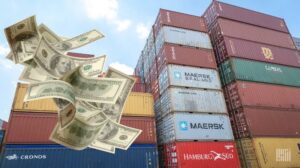
Are you aware that most people are too busy earning a living to make any real money?
If you begin to think about it you’d realize that it’s true!
Personally, I used to work hard.
16 hours a day, 7 days a week.
And the weird thing is:
I started generating more income, when I started doing less a lot less, thanks to this highly unusual resource that we are here to share with you.
Palmadex Group
Nigeria’s fast-growing export consultants and reliable Exporters of Quality Agricultural Commodities and Processed Foods, such as sesame seed, hibiscus, cassava, charcoal, ginger, raw cashew nut, cocoa beans, coffee, kola nuts, poultry, groundnut, locust beans, vegetables and rubber among others.
Got laid off?
Out of options?
Think again, I have your plan B… and it works like MAGIC…
Palmadex– Winners of Best Agricultural Product export company of the year by the Nigeria Export Summit. And also winners of the best export trading institute of the year 2019. We are the benchmark to export trading in Nigeria, We provide executive training, with the best curriculum and hands-on training.
- 1
- 2

